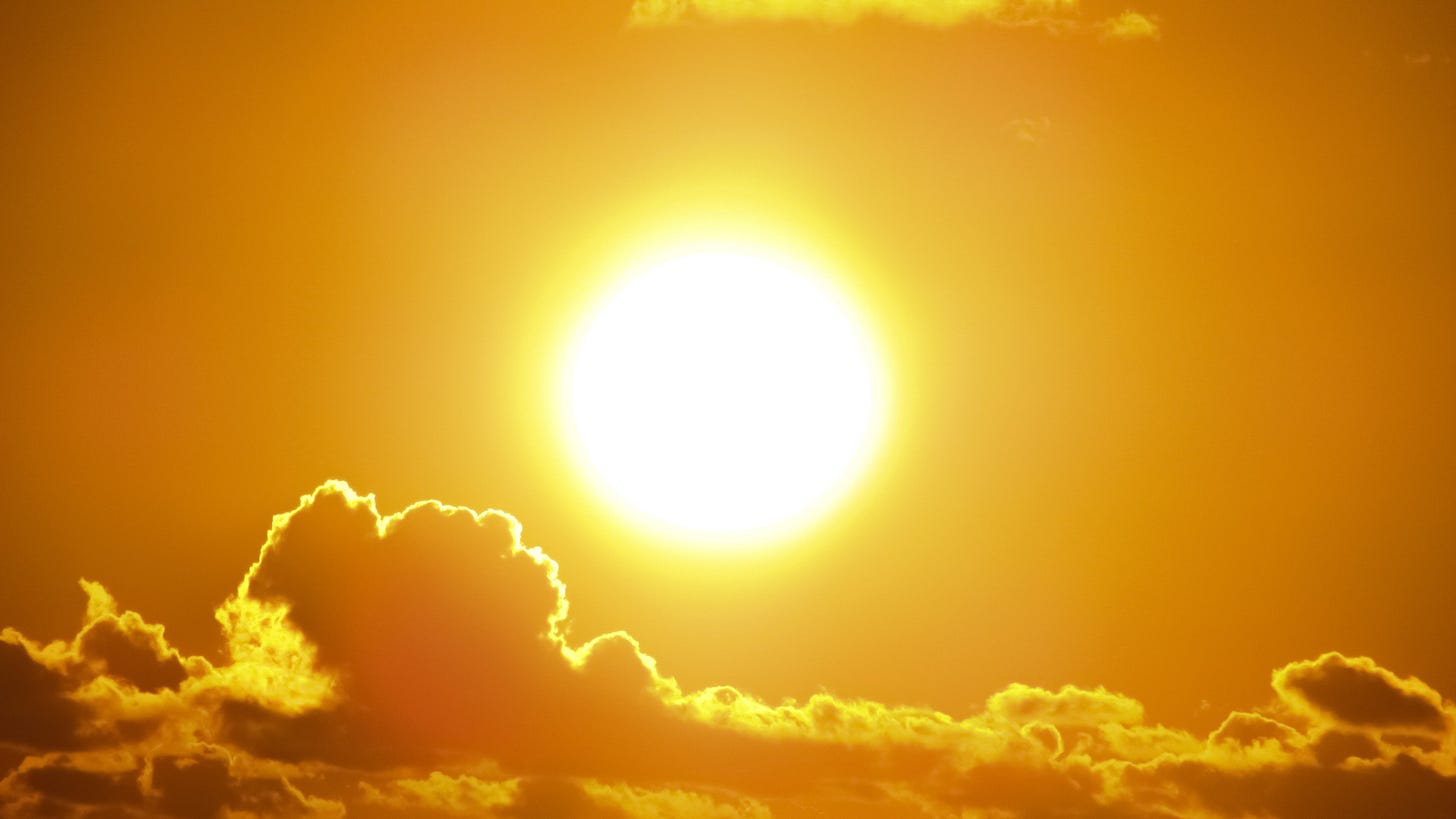Yes, You Should Wear Sunscreen
Protecting your skin against UV damage is important to prevent cancer and look younger.
One of the alarming trends sweeping social media currently is a rejection of sunscreen, further fueled by a recent recall of several sunscreen brands. The recall only applied to aerosolized forms of it that were found to contained benzene, a known carcinogen. Some have raised concern that other chemicals we know are present in sunscreen could be dangerous. You know what is definitely dangerous? Fucking melanoma. And the primary driver behind looking old is not the simple march of time but UV exposure. Wear sunscreen regularly.

Your skin contains a number of cells called melanocytes responsible for producing the melanin — even if in tiny amounts in white people like me — that gives skin its pigment. If the DNA of these cells are damaged by, say UV radiation, they can turn into melanomas. Though easy to treat when they have not spread beyond the immediate area around them, melanomas are a particularly nasty type of cancer once they metastasize.
Even less serious forms of skin cancer, like basal cell carcinoma (BSC), can be a major medical nightmare. BSCs tend to stay localized and are slow-growing — but can spread extensively for years beneath the surface of the skin. Even cases of localized skin cancer, be they BSC or melanoma, often require tedious surgical operations to ensure the entire malignancy is removed, making deeper and deeper slices until no cancerous cells show up on the microscope.
One of the biggest markets in personal care is “anti-aging” products, many of which can help plump and moisturize aging skin… temporarily. Turning back the clock is ridiculously hard, though recently humanity is finally making serious strides in that area. But those technologies are not yet available and won’t come in the form of a cream you can buy at Target. Preventing the effects of aging before they happen is the most ideal form of “anti-aging” of all. Sunscreen is critical for that.
You have a thin layer of protein underneath your skin called elastin. If you think it sounds like elastic, that’s no coincidence — it is what gives skin its elasticity. UV radiation permeates down to this layer, and it can cause damage that is difficult for your body to repair. This is what causes the saggy, wrinkly skin that is the most apparent sign of aging.
Otherwise, your body is surprisingly adept at keeping elastin healthy, even as you age, but it cannot protect it against the piercing power of the sun. Tanning beds, though culturally associated with beauty, will prematurely rob you of your youthful look by bathing you in artificial UV light. If you want your skin to look young forever, you should always wear sunscreen — as well as moisturize every day and avoid tobacco products.
Some anti-sunscreeners cite the skin’s ability to synthesize Vitamin D from UV exposure, though it is commonly added to other foods to fortify their nutritional value, and it is available cheaply in supplement form — hardly some difficult-to-obtain nutrient. Those obsessed with the idea of “natural” things being better may cling to the fact it is the more natural way to get Vitamin D, but it is also the more natural way to get aggressively malignant cancer.
Most sunscreen is safe if used as indicated. In general, the recalled aerosolized sunscreen is used incorrectly anyway. You are still supposed to rub the sunscreen into your skin, not merely spray it on, which many people who use it miss. Sunscreen is slightly easier to dispense from them, but they do not take out most of the actual effort. But, even so, manufacturers are working to remove the benzene contamination present in these products, and a properly produced spray-on sunscreen applied correctly is far preferable to nothing.
Avoiding cancer and premature aging is incredibly important, even if the way we do it involves artificial chemicals — much in the same way that getting the COVID vaccine is far preferable to actually getting COVID. The supposed benefits of willfully letting your skin get seared by the sun are massively outweighed by the miracle that modern humans have to ensure younger-looking, cancer-free skin.

